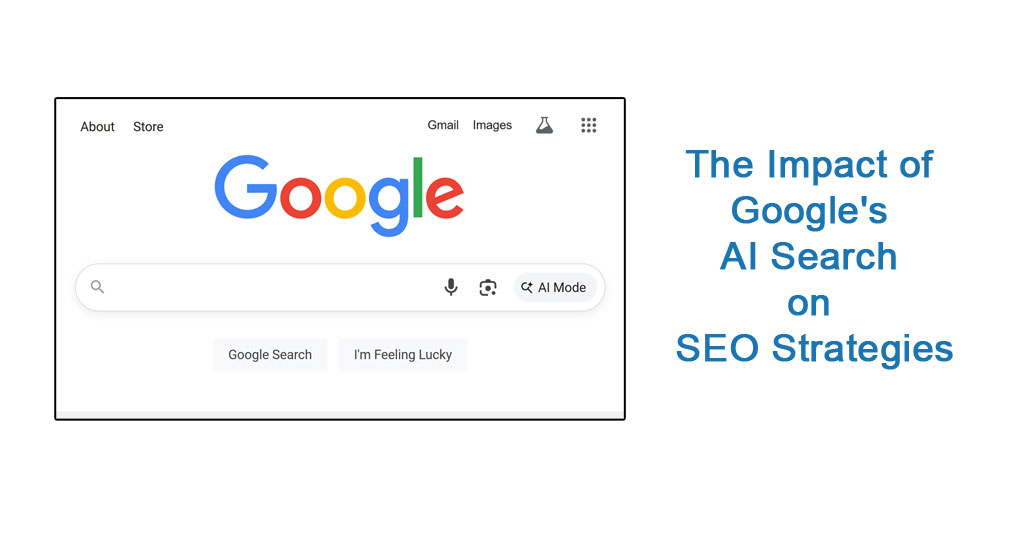Google’s integration of artificial intelligence (AI) into its search engine marks a pivotal shift in how users access information online. Features like AI Overviews and AI Mode, powered by Google’s Gemini models, aim to deliver more comprehensive and intuitive search results. These advancements, while beneficial for users, pose new challenges and opportunities for Search Engine Optimization (SEO). As AI-driven search reshapes the digital landscape, SEO professionals must adapt their strategies to maintain visibility and drive traffic. This article explores the implications of Google’s AI Search features on SEO, offering actionable insights for navigating this evolving environment.
Understanding Google’s AI Search Features
Google’s AI Search features leverage generative AI to enhance the search experience, making it more efficient and user-focused. The key features include:
- AI Overviews: These provide a concise snapshot of key information from multiple sources, displayed at the top of search results. For example, a query like “how to start investing” might yield a summary combining insights from financial websites, advisory firms, and personal finance blogs. AI Overviews are designed for informational queries, reducing the need for users to click through multiple links. They are a core feature of Google Search, similar to knowledge panels, and cannot be disabled, though users can opt for a “Web” filter to view traditional results (Google Search Help).
- AI Mode: A more advanced feature, AI Mode allows users to ask complex, conversational questions and receive detailed, AI-generated responses. It supports follow-up questions and provides links for further exploration, making it ideal for tasks like research or planning. AI Mode uses a “query fan-out” technique, breaking queries into subtopics and searching them simultaneously to deliver hyper-relevant content (Google Blog).
These features, introduced as part of Google’s Search Generative Experience (SGE) and later expanded, are powered by custom Gemini models. They aim to streamline the search process, catering to users who seek quick, accurate, and comprehensive answers.
The Impact of AI Search on SEO
The introduction of AI Search features has significant implications for SEO, altering how websites are discovered and ranked. Key impacts include:
- Potential Decrease in Click-Through Rates (CTR): AI Overviews often provide complete answers directly in search results, reducing the need for users to visit external websites. For informational queries, this can lead to lower CTR, as users find what they need without clicking through. For instance, a study by Semrush suggests that AI search visitors may surpass traditional search visitors by 2028, indicating a shift in user behavior.
- New Opportunities for Visibility: Despite reduced clicks, being cited in AI Overviews can drive traffic and enhance credibility. Websites featured in these summaries gain exposure to a broader audience, as AI Overviews are used by over a billion people (Google Blog).
- Broader Content Discovery: The “query fan-out” technique issues multiple related searches, pulling content from a diverse range of sources. This creates opportunities for niche or highly specific content to be featured, as seen with citations from platforms like Quora and Reddit (Google Developers).
- Shift in User Behavior: As users rely more on AI-generated summaries, SEO strategies must prioritize content that aligns with user intent and Google’s quality standards. This includes focusing on conversational queries and comprehensive answers.
- Performance Measurement Challenges: Google does not provide a separate report for AI Overviews in Search Console, making it harder to track their impact. However, AI features are included in the “Web” search type in Search Console’s Performance report, and higher-quality clicks from AI Overviews can be tracked via Google Analytics (Google Developers).
Adapting SEO Strategies for the AI Era
To succeed in the era of AI Search, SEO professionals must evolve their strategies to align with Google’s AI-driven approach. Here are key recommendations:
1. Focus on High-Quality, Unique Content
- Google emphasizes creating helpful, reliable, and people-first content that demonstrates Expertise, Experience, Authoritativeness, and Trustworthiness (E-E-A-T). Content that provides unique value is more likely to be cited in AI Overviews (Google Search Central Blog).
- Avoid generic or mass-produced content. Instead, focus on in-depth, original insights that address specific user needs. For example, a detailed guide on “how to choose a pet for a small apartment” is more likely to be featured than a generic pet care article.
2. Optimize for Long-Tail and Conversational Keywords
- AI Search excels at handling complex, conversational queries, so targeting long-tail keywords that match user intent is crucial. For instance, optimize for phrases like “what are the best investment strategies for beginners” rather than broad terms like “investing”.
- Incorporate natural language in your content to align with how users ask questions, as AI models prioritize conversational queries.
3. Leverage Structured Data
- Implementing structured data markup (e.g., schema.org) helps Google understand your content, increasing the likelihood of being featured in AI Overviews. Structured data can also enhance visibility in traditional search results (Google Developers).
- Examples include marking up articles with
Articleschema, products withProductschema, or FAQs withFAQPageschema.
4. Monitor and Analyze Performance
- Use Google Search Console and Google Analytics to track how AI Search features affect your website’s traffic and engagement. Monitor changes in CTR, organic traffic, and keyword rankings to identify trends.
- Since Google does not provide a dedicated AI Overviews report, focus on the “Web” search type in Search Console and analyze click quality in Analytics.
5. Embrace Niche and Specific Content
- AI Search often cites content from niche sources like Quora and Reddit, indicating that highly specific content is valuable. Create content that addresses unique questions or serves particular audiences, such as “best hiking trails for families in Colorado”.
- Long-form content that provides comprehensive answers is more likely to be referenced in AI-generated summaries.
6. Ensure Technical SEO Best Practices
- Ensure your website meets technical requirements for Google Search, such as allowing crawling in
robots.txt, using internal linking to improve site structure, and providing a great page experience (e.g., fast loading times, mobile-friendliness, HTTPS) (Google Developers). - Include high-quality images and videos with proper alt text and structured data to enhance discoverability.
7. Control Content Usage
- Use tools like robots.txt, nosnippet, data-nosnippet, or noindex to control how your content is displayed in AI Search features. For AI training, review Google’s Google-Extended crawler settings (Google Developers).
- Troubleshoot issues using the URL Inspection tool or request a recrawl if needed.
Table: SEO Strategies for AI Search
| Strategy | Description | Tools/Resources |
|---|---|---|
| High-Quality Content | Create reliable, E-E-A-T-focused content that addresses user needs. | Google’s E-E-A-T Guidelines |
| Long-Tail Keywords | Target conversational, specific queries to align with AI Search. | Keyword research tools (e.g., Semrush, Ahrefs) |
| Structured Data | Use schema markup to enhance content understanding. | Schema.org, Google Structured Data Testing Tool |
| Performance Monitoring | Track traffic and CTR changes using analytics tools. | Google Search Console, Google Analytics |
| Niche Content | Create specific, audience-focused content for AI citations. | Content planning tools, user forums (e.g., Reddit, Quora) |
| Technical SEO | Ensure crawlability, fast loading, and mobile-friendliness. | Google PageSpeed Insights, Mobile-Friendly Test |
| Content Control | Use robots.txt or nosnippet to manage AI feature display. | Google Search Central |
Expert Opinions and Future Outlook
Industry experts view AI Search as an evolution, not the end, of SEO. Key perspectives include:
- SEO Remains Relevant: SEO professionals who adapt to AI-driven search will continue to succeed. Traditional practices like keyword research and technical optimization remain foundational, but they must be complemented by a focus on user intent and content quality.
- AI Tools for SEO: AI-powered tools can enhance SEO by improving keyword research, content creation, and performance analysis. For example, tools like Semrush and Ahrefs use AI to identify trends and optimize strategies.
- Niche Content Gains Traction: The prominence of platforms like Quora and Reddit in AI Overviews suggests that niche content will play a larger role. SEO professionals should create content that addresses specific, underserved queries.
- Continuous Adaptation: The dynamic nature of AI Search requires ongoing experimentation. SEO professionals must stay informed about Google’s updates and test new strategies to remain competitive.
The future of SEO lies in harmonizing human creativity with AI capabilities. As AI technology advances, SEO strategies will become more sophisticated, but the core principle of delivering helpful content will remain unchanged.
Case Studies and Examples
While comprehensive case studies on AI Search’s impact are still emerging, early observations provide insights:
- CTR Impact: For queries like “how to start investing,” AI Overviews combine insights from multiple sources, reducing clicks to individual websites. However, cited websites gain credibility and indirect traffic.
- Niche Content Success: Platforms like Quora and Reddit are frequently cited in AI Overviews due to their focus on specific questions. This highlights the value of creating content for niche audiences.
- Content Quality Wins: Websites with high E-E-A-T scores, such as established news outlets or industry experts, are more likely to be featured in AI Overviews. For example, a financial advisory firm’s detailed guide on risk management may be cited alongside broader investment content (Google Search Central Blog).
- Real-World Example: CNN Brasil’s partnership with NP Digital led to a 91% increase in pageviews and a 19% boost in top 10 Google keyword rankings, partly due to high-quality content optimized for user intent. While not directly tied to AI Overviews, this demonstrates the value of E-E-A-T-focused strategies.
Conclusion
Google’s AI Search features, including AI Overviews and AI Mode, are reshaping the search landscape, presenting both challenges and opportunities for SEO. While reduced CTR for some queries is a concern, websites can gain visibility by being cited in AI-generated summaries. By focusing on high-quality, unique content, optimizing for conversational keywords, leveraging structured data, and monitoring performance, SEO professionals can thrive in this new era.
The future of SEO is dynamic, requiring continuous adaptation to AI-driven changes. By staying informed and experimenting with new strategies, SEO professionals can harness the power of AI Search to drive traffic and engagement. As Google continues to innovate, the principles of creating helpful, reliable content will remain the cornerstone of successful SEO.







